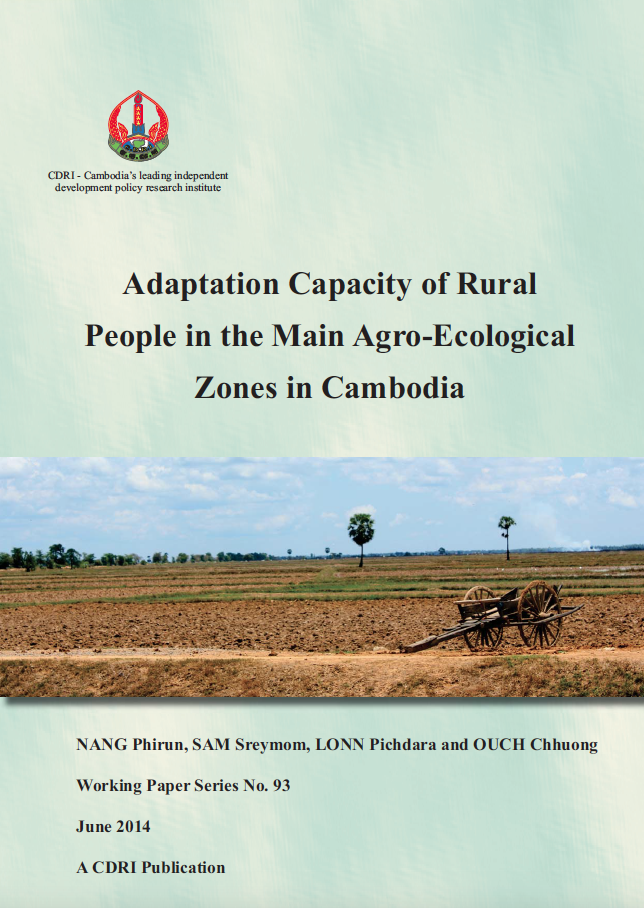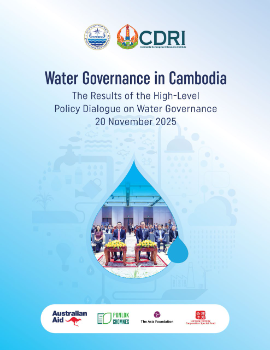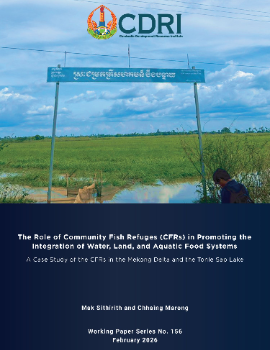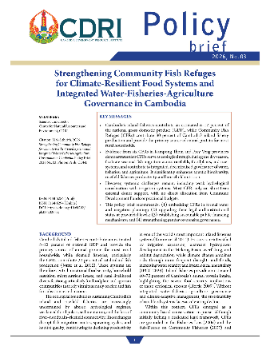
Adaptation Capacity of Rural People in the Main Agro-Ecological Zones in Cambodia
Keyword: Climate change adaptation, agro-ecological zones, local adaptive capacity, rural livelihoods, institutional entitlements
Abstract/Summary
Cambodia is divided into four agro-ecological zones—the Tonle Sap plain, Mekong plain, mountains/plateau and coast—representing heterogeneous agricultural activity, population and livelihood systems (UNDP 2011b). Climate change impacts and the adaptive capacity of the people differ from one zone to another. Adaptation measures have varied according to the sector and the locality, adaptive capacity and severity of the impacts. Even though co-management by the state and communities of forest, fishery and water resources has been improved, local communities’ capacity to respond or adapt to climate change is still limited (Ros et al. 2011; Nang 2013). This study adopts a qualitative approach. It examines the impact of climate change and then identifies practicable measures for strengthening the capacity of local people and communities to cope with these impacts in the four zones. The Local Adaptive Capacity (LAC) framework has been applied and key issues related to institutions and entitlement—knowledge and information, fostering innovation, promoting forward-looking, flexible governance, decision making and potential interventions—have also been examined. The study found that the adaptive capacity of rural people and communities, in particular the poor and marginalised in the four zones, is moderately low since they depend mainly on climate-sensitive resources and do not have diversified livelihood sources. In addition, their access to assets to help them to cope with climate-related hazards is notably deficient. In some areas, such assets are more or less out of reach for the poor and marginalised. It is apparent that actions to minimise the impacts of climate change and weather variability must be undertaken and strengthened at all levels and in all agro-ecological zones. It is noted that the availability of livelihood assets, and of institutions and entitlement, and access to the six LAC issues listed above are key in supporting the adaptive capacity of rural people. Those involved should work cooperatively to ensure that farmers and communities have better access to these assets and support.



